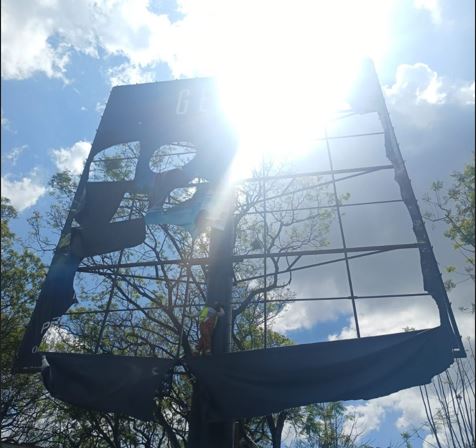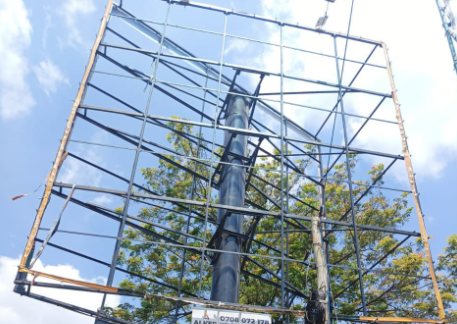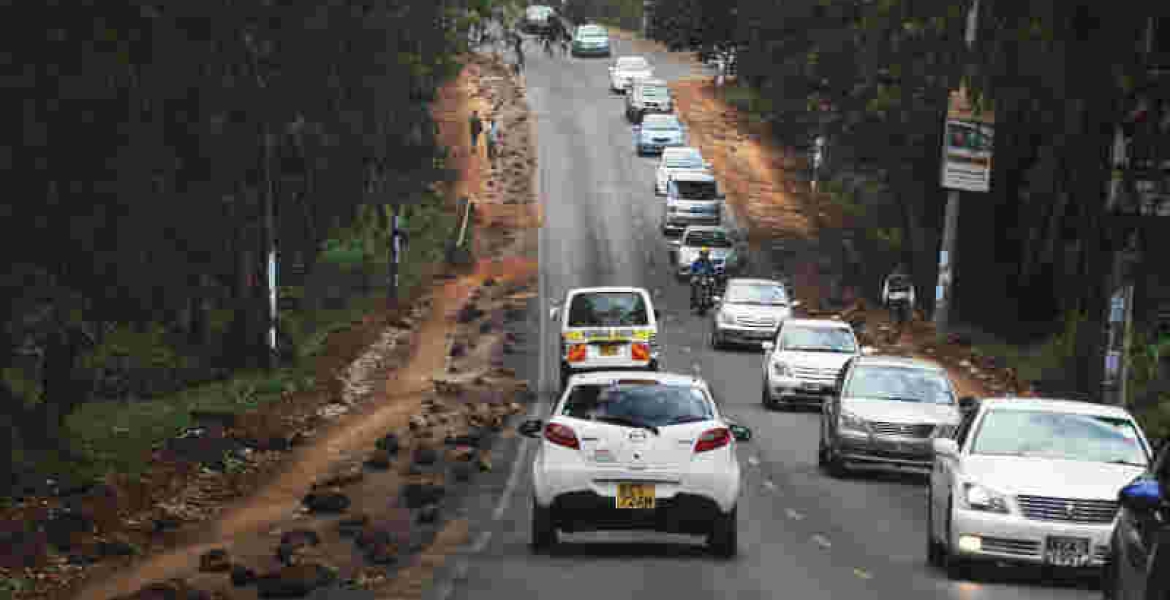 One of the billboards pulled down by Nairobi County officials. /HANDOUT
One of the billboards pulled down by Nairobi County officials. /HANDOUT
The Nairobi City County Government has launched a crackdown on billboard companies with outstanding revenue arrears and unapproved structures.
Chief Officer for Urban Development and Planning Patrick Analo Akivaga said the operation, ordered by County Executive Committee Member for Built Environment and Urban Planning Patrick Mbodo, targets key areas including James Gichuru Road, Olenguruone Road, and Kingara Road.
According to Analo, several outdoor advertising companies
owe the county more than Sh500 million—money paid to them by private clients
for onward remittance to the county as advertising fees.
“Some of these companies have not only failed to remit what is owed but have also erected illegal billboards and cut down trees in the process,” Analo said.
“The enforcement teams will continue the operation until full compliance is achieved.”
He added that all illegal billboards and unapproved outdoor structures will be pulled down, and defaulters prosecuted in line with county laws.
The crackdown is part of City Hall’s broader strategy to reclaim lost revenue and enhance urban order across Nairobi’s fast-growing commercial zones.
At the same time, the Department of Planning has rolled out a new regularisation exercise targeting thousands of unauthorised developments across the city.
The initiative, anchored in the Nairobi City County Regularisation of Unauthorised Development Act, 2025, invites developers, property owners, land-buying firms, and investors with unapproved projects to seek official approvals.
Analo explained that the exercise aims to legalise buildings and structures erected without permits, provided they meet minimum safety and planning standards.
“To ensure transparency, the county government will publish notices of unauthorized developments in at least two national newspapers,” he said.
The regularisation will cover a broad range of developments, including subdivisions, change of use, extensions, architectural plans, structural works, billboards, LEDs, wall wraps, and even informal settlements on private land.

Analo further noted that the county intends to resolve longstanding land ownership and planning disputes that have hindered orderly development in several neighbourhoods.
Areas such as Ruai, Kasarani, Mwiki, Roysambu, and parts of Embakasi have been particularly affected by conflicts involving land-buying companies, squatters, and government allocations.
Projects that fail to meet the county’s standards or regularisation requirements will face enforcement action under the Physical and Land Use Planning Act, 2019.
Unregulated advertising has remained a persistent challenge for Governor Johnson Sakaja’s administration. Earlier this year, City Hall carried out multiple enforcement drives, including a January operation that led to the removal of unauthorised signage within the Central Business District (CBD).
Sakaja has consistently emphasised that all advertising and development activities in Nairobi must comply with established county regulations, insisting that order and accountability are central to the capital’s modernisation agenda.














